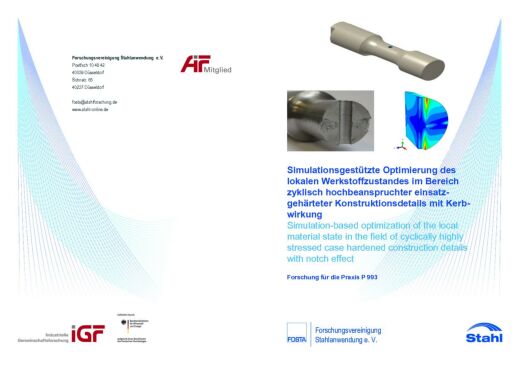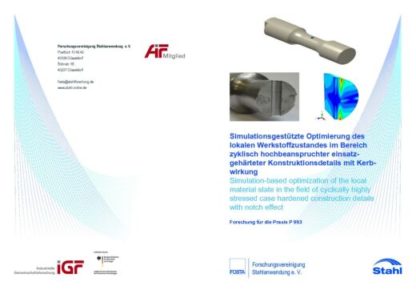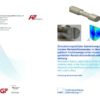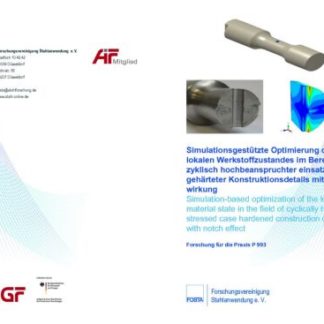Description
P 993 – Simulation-based optimization of the local material state in the field of cyclically highly stressed case hardened construction details with notch effect
Construction details, such as cross holes and rounded shaft shoulders, lead to local stress concentrations in case of mechanical loads. Under cyclic loading these stress concentrations can cause crack initiation, crack propagation and finally failure of structural components.
The fatigue strength of cyclically loaded components can be considerably increased by the thermal-chemical heat treatment case hardening. The shape of the construction detail has a significant influence on the sub-processes of case hardening. This relates to the carbon diffusion during carburizing and the local heat transfer during quenching.
Within the research project the local material state of cyclically highly stressed case hardened construction details with notch effect (hole an shoulder) of component-like specimens manufactured from the materials 18CrNiMo7-6 and 20MnCrB5 has been modified by case hardening. Based on a coupling between FE case hardening simulation and the stress state of the component, a review of the process relevance of the case hardening´s technological parameters has been first performed with sensitivity analyzes. An optimization of the as relevant identified process parameters for the respective notch geometry has been subsequently carried out.
In the case of the gas carburized shaft with cross hole the fatigue strength could be increased up to 8 % by the modified case hardening process. In addition, the modified case hardening results in a reduction of the respective carbon potential up to 28 %, an up to 32 % reduction of the total duration of the carburizing process.
In the case of the low pressure carburized shaft with shoulder, no potential for an increasing fatigue strength with the modified case hardening process has been verified.
Although the fatigue strength cannot be increased with a modified case hardening, an up to 17 % reduction of the carburizing duration and an up to 22% decrease in diffusion duration are possible.
Only available in german language.
Published in:
December 2016
FOSTA – Research Association for Steel Application




